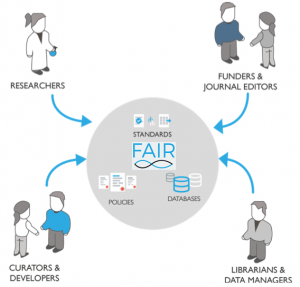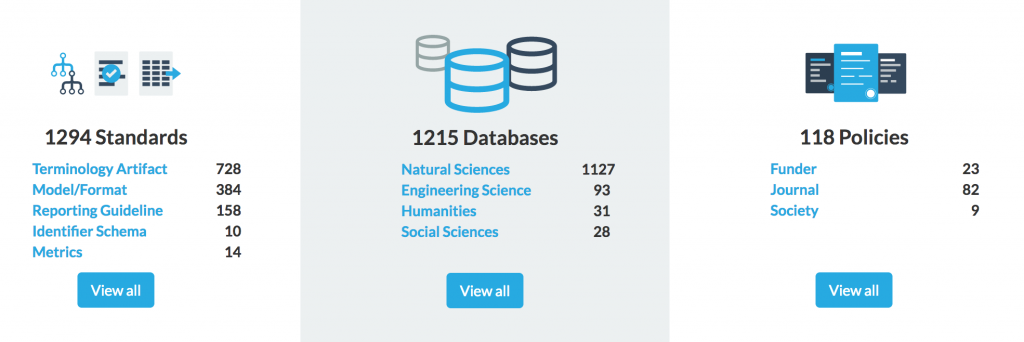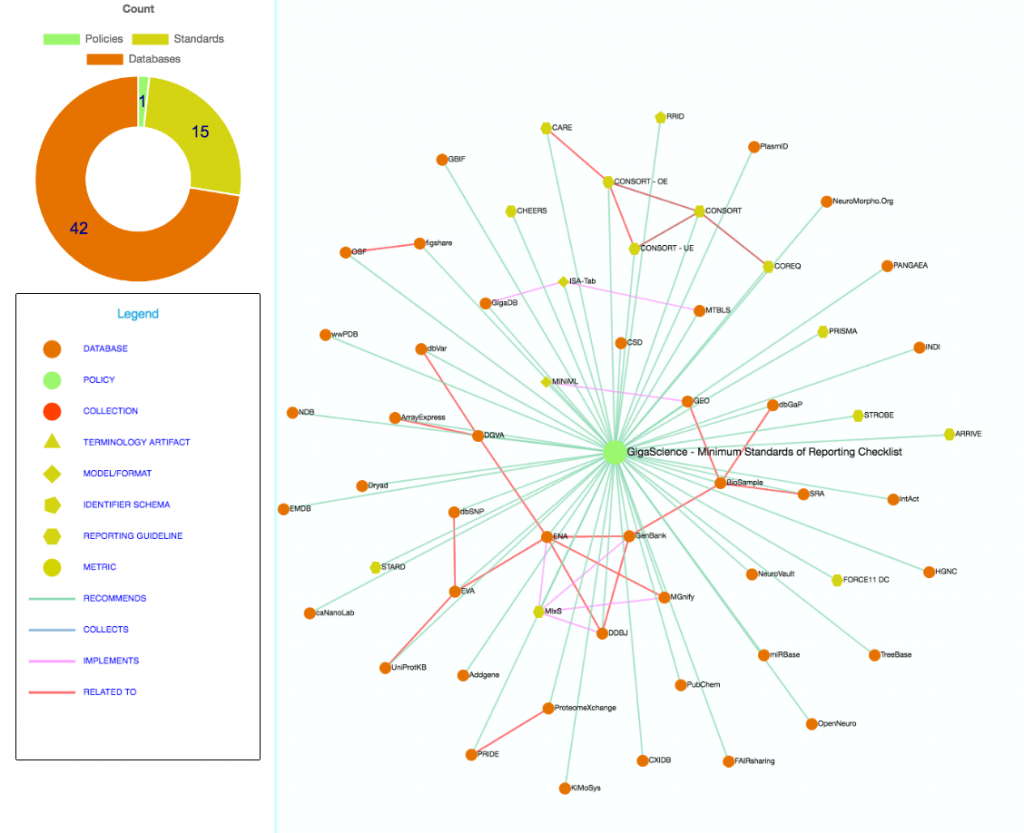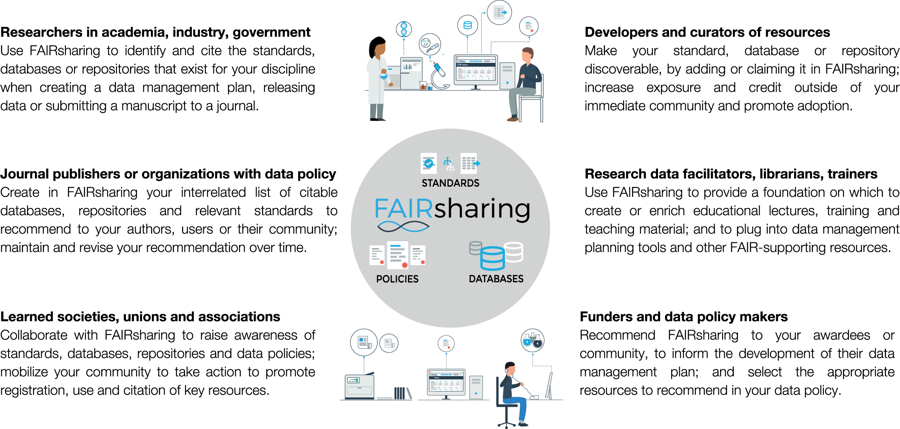Presenting the FAIRsharing community network
FAIRer Sharing via FAIRsharing

Image from FAIRsharing.org.
Our aim at GigaScience is to provide the means to open up and share research data. On top of just making these available via our (new look) GigaDB database, we’ve been involved with communities that wants to maximize the utility of these research outputs by making them FAIR: Findable, Accessible, Interoperable and Reusable. To enable this requires infrastructure and standards, and these efforts, driven by large organizations or at the grass root level, have been on the rise since the early 2000s. If anything these efforts have been a victim of their success, with thousands of community-developed standards and data repositories available. Although, maybe partly due to the sheer number of resources, their uptake has been slow and uneven. Just out in Nature Biotechnology is a community driven attempt by the FAIRsharing community network (of which we are members) to maximize the visibility and adoption of these standards, databases and repositories. Lead by our Editorial Board Member Susanna-Assunta Sansone, the new paper highlights some of the roles we all should play to enable this.
In this modern, data-driven age, the people that fund research (including tax payers) expect greater transparency and reuse of research data, as well as greater access to and preservation of the data that supports research findings. To foster a culture of change within the research community into one where the use of standards, databases and repositories for FAIRer data is pervasive and seamless, we need to better promote the existence and value of these resources. First and foremost, we need to paint an accurate picture of the status quo, of which this new work covers with detailed summary stats of the current state of play. At the time of writing this there are 1294 standards and 1215 databases listed by the FAIRsharing curators on the FAIRsharing.org website.

Importantly, several stakeholders can play catalytic roles in fostering a culture change within the research community where the use of standards, databases and repositories for FAIRer data is pervasive, and one of the most crucial highlighted and targeted by these efforts are journals such as ourselves. We have strict and detailed policies highlighted in our editorial policy and reporting guideline pages, submission checklists and editorials, but as with terms and condition documents it’s easy to miss this information in all the small print. And it can also quickly become out of date. Providing a curated and easy to maintain list of publisher, journal and funder policies provides a home to compare and contrast these, and our Editorial and reporting policies are one of the 118 listed on the portal. The interactive nature of the FAIRsharing platform allows the potential for visualization and more dynamic updates to specific journal policies. We worked with FAIRsharing to embed their journal policy visualization widget.

Other journals may not be so proactive with data policy and practice as we are, but FAIRsharing is a great resource to educate on community best practice, and this new article lobbies all journals to present data statements and policies to ensure all data relating to an article or project are as FAIR as possible. The “Ask FAIRsharing” wizard makes it easier for researchers to find the relevant database, policy, and/or standards for their work. Journals such as ourselves also encourage authors to cite the standards, database and repositories they use or develop via the ‘how to cite this record’ statement, found on each FAIRsharing record, which includes a DOI. We are in a unique position where we also have our own data repository, and GigaDB has and maintains its own FAIRsharing record: doi:10.25504/FAIRsharing.rcbwsf. In our recent paper in Database Journal we also follow good practice and include the FAIRsharing DOI.
FAIRsharing is an informative and educational service vital to reduce the knowledge gap among those involved in producing, managing, serving, curating, preserving, publishing or regulating data. As active members of the community we applaud this work, and recommend our readers utilise these resources and join the FAIRsharing users and community in making their work more FAIR. To learn more read the new paper.

Image by FAIRsharing.org, used under a CC BY-SA 4.0 license.
Further Reading
Sansone SA et al., FAIRsharing, a cohesive community approach to the growth in standards, repositories and policies. Nature Biotechnology 37, p358–367 (2019) doi:10.1038/s41587-019-0080-8